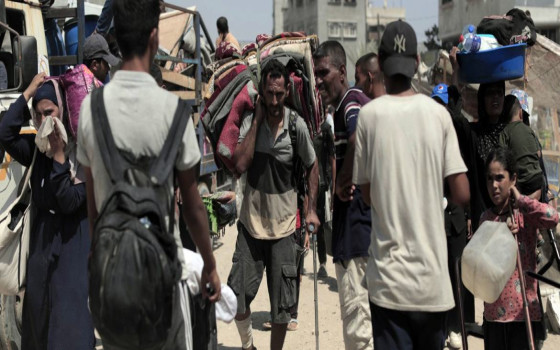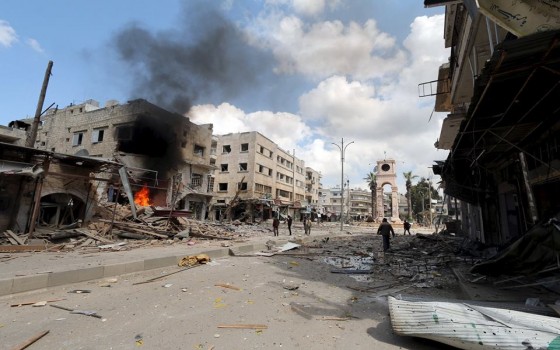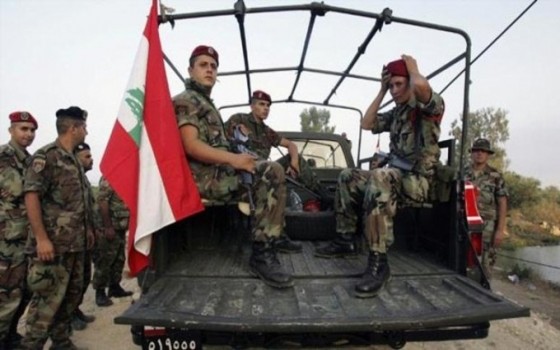
High rates of miscarriage among pregnant women in Gaza and lack of basic services. "Basmat Amal" camp provides shelter for displaced people with special needs

- Europe and Arabs
- Tuesday , 30 July 2024 9:17 AM GMT
Gaza - New York: Europe and the Arabs
The United Nations Senior Coordinator for Humanitarian Affairs and Reconstruction in Gaza, Sigrid Kaag, said that the situation in Gaza remains catastrophic, 10 months after the war, noting that the Palestinians have suffered from a horrific cycle of human misery. She spoke about the high rates of miscarriage among pregnant women in Gaza and the lack of basic services. According to the UN daily news bulletin
Speaking to reporters in New York, via video from Jordan, yesterday, Monday, Kaag stressed the importance of an immediate and complete ceasefire and the immediate and unconditional release of all hostages. She continued, saying: "We are also working to ensure that we are ready in case the much-needed ceasefire is announced. The United Nations and its partners are working to increase supplies through pre-positioning from Jordan and Egypt, and we are asking donors to continue funding. And of course, on the political level, I am dealing with everyone to ensure that we are able to do this." The UN official said that the UN mechanism for Gaza, included in Security Council resolution 2720, is working to deliver aid to Gaza from Jordan and Cyprus, while the final touches are being put on Egypt. Resolution 2720 - adopted by the Security Council on 22 December 2023 - calls for urgent steps to allow immediate, expanded, safe and unhindered delivery of humanitarian assistance, and to create the conditions necessary for a sustainable cessation of hostilities.
Birth in appalling conditions
Ms. Kaag said that she had just returned from another visit to Gaza, noting that she intended to spend longer periods in the Strip. She explained that she had officially opened her office there, and that her team had partially moved to Gaza.
She also noted the impact of high temperatures on people in Gaza. She said that the UN team and partners were working to address the severe shortage of waste management and sanitation facilities, in light of the risks of the spread of infectious diseases, especially polio, as the polio virus was identified in water based on samples collected last month in Khan Younis and Deir al-Balah. Sihrid Kach said she visited a mobile maternity ward that had just been approved for use in Gaza, run by UNFPA and the International Medical Corps, and noted that doctors, nurses and midwives were working bravely to ensure safe deliveries and to perform a large number of caesarean sections, but under what she called appalling conditions. “Children usually bring joy and temporary relief to families, but we also know that many mothers are deeply concerned about the future and the world they are bringing their children into,” she said. “I also learned from doctors that the rate of miscarriages in the first and second trimesters is on the rise and the explanations are unclear and they will conduct studies on this.” At the same hospital, Sihrid Kach said she visited children with severe and chronic medical conditions that often cannot be treated unless they are medically evacuated. “It is hard to imagine the suffering of children who have been displaced four or five times within Gaza in search of safety and shelter,” she said. In the same context, Scott Anderson, Deputy Director of UNRWA Affairs in the Gaza Strip, visited Basma Amal camp in Deir al-Balah, Gaza Strip, which houses about 100 displaced families with special needs. The visit was not just a regular tour of the tents, but an opportunity to listen to painful and inspiring stories at the same time, and to share moments of joy and play with the children in the midst of the difficult circumstances they are going through. Basma Amal camp is managed by the "NGO Network in the Gaza Strip". Amjad Shawa, the network director, welcomed Mr. Anderson’s visit, praising UNRWA’s efforts to stand by the Palestinians, saying: “Today, Mr. Scott Anderson is visiting us. As you know, the United Nations is the primary institution that provides services to our people in light of the difficult circumstances we are living in. We emphasize once again the special status of persons with disabilities. There is a complex and complicated suffering, but through this partnership that was concluded today between three institutions – the Palestinian Red Crescent, the Agricultural Relief and Atfaluna Society – we were able to establish the first shelter for persons with disabilities. We were able to accomplish this with our limited capabilities, but with your efforts, steadfastness and patience we can accomplish more than this. Amjad Shawa expressed his hopes for a ceasefire to happen soon, adding: “We are waiting for the moment of a ceasefire soon so that we can return to our homes and our families in Gaza and for this tragedy to end. I am happy that Mr. Scott is with us. He knows our problems and suffering very well, and his voice is always with us.”












No Comments Found